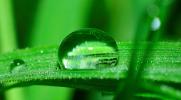H2020 GO-GRASS Project: Grass-Based Circular Business Models for Rural Agrio-Food Value Chains
- Type Project
- Status Firmado
- Execution 2019 -2024
- Assigned Budget 9.970.772,5 €
- Scope Europeo
- Main source of financing H2020
- Project website GO-GRASS
Grasslands are important for land use in Europe, covering more than a third of Europe's agricultural land. Furthermore, they are diverse in terms of management, yield, and biodiversity value, providing fodder and other key resources for the European livestock sector. The EU-funded GO-GRASS project will create new opportunities in rural areas based on grasslands and green forages. These will be tested on a small scale in four EU regions to ensure widespread replication.
Within a circular system, the project will develop circular, sustainable business models suitable for remote areas with untapped resources. The GO-GRASS consortium is made up of a multidisciplinary team of 22 partners from eight European countries (Belgium, Denmark, Germany, Hungary, the Netherlands, Romania, Spain, and Sweden).
The main objective of the GO-GRASS project is to create new business opportunities in rural areas based on grasslands and green forages. These will be demonstrated on a small scale in four EU regions, ensuring their replicability across all rural communities in the EU. Within a circular system, GO-GRASS will provide a range of circular and sustainable business models with high replication potential, which will be available to entrepreneurs and local authorities.
The project will also demonstrate innovative and cost-effective technologies, processes, and tools applicable within the various DEMO scenarios (deploying demonstrators in different EU regions as representative sites to cover different rural contexts), considering the social, economic, and environmental circumstances in rural areas with the aim of achieving large-scale replication, especially in remote areas with untapped resources. Furthermore, the GO-GRASS project will help the EU reduce imports of nutrients such as P and even protein, as well as its dependence on fossil fuels.
Thanks to the GO-GRASS project, the Bioeconomy will be consolidated, leveraging regional assets, diversifying and revitalizing the economy, and providing quality jobs and opportunities in rural areas. Furthermore, the production and use of bio-based products that replace existing fossil-based alternatives, such as fertilizers or plastic packaging, can have a significant impact on greenhouse gas emissions from agri-food systems at the EU level. To achieve this goal, the GO-GRASS consortium is made up of a multidisciplinary team of 22 partners from eight European countries (Germany, Spain, Denmark, Sweden, the Netherlands, Belgium, Romania, and Hungary).
The consortium is built around four regional demos located in Germany, Denmark, the Netherlands, and Sweden that integrate the concept of a multi-stakeholder approach, with the expertise of multiple appropriate partners (farmers, research centers, technology companies), three follower partners, and others with a cross-cutting role.
- LEIBNIZ-INSTITUT FUR AGRARTECHNIK UND BIOOKONOMIE EV (ATB)







